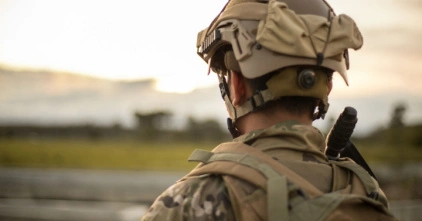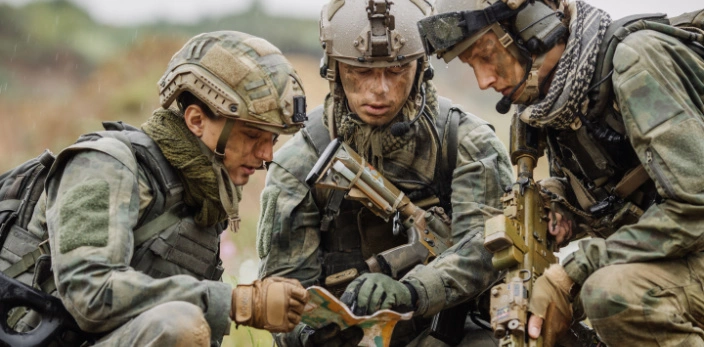
Ace the STANAG 6001 SLP exam with preparation strategies and goFLUENT’s military-relevant language learning.
One of the military’s most important skills has nothing to do with combat. But it does have everything to do with communication. While physical strength and tactical skills remain vital, the military also recognizes the importance of language training and testing.
Why has the military invested resources into language training? It’s crucial in modern warfare. Language proficiency enhances the effectiveness and safety of military operations.
Military organizations depend on collaboration and communication with fellow defense personnel and civilians. And it will only become more important as they work with more foreign partners.
This article will explore the importance of language skills in the military context. We will also focus on the Standardization Agreement (STANAG 6001) exam and how goFLUENT’s solutions can aid in its preparation.
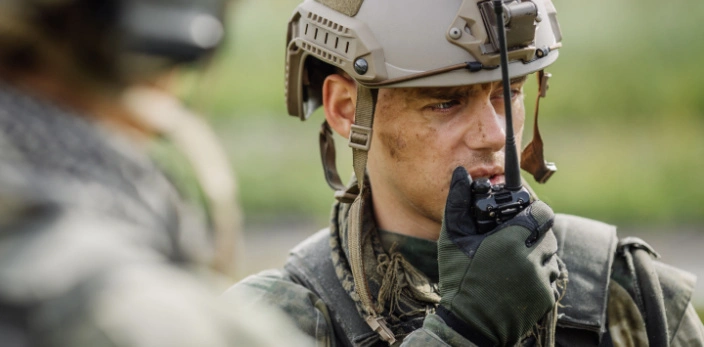
Language as a means to protect and serve
The importance of language skills in the military cannot be overstated. In fact, everyday operations depend on collaboration and communication.
Proficiency in a common language facilitates clear communication and ensures seamless collaboration between allied forces. “Learning a language will not only help one learn about that culture but be able to operate more effectively once immersed in it,” shares Morgan Smiley, an active-duty Army officer.
For senior officers who make strategic decisions, language helps them influence perceptions, establish credibility, and advocate for policies. This also enables them to negotiate agreements and shape narratives to align with national objectives.
Operating in diverse cultural contexts, Foreign Area Officers (FAOs) must establish rapport, gain trust, and bridge cultural divides. With language, they can engage with foreign counterparts and local communities on a deeper level.
In other scenarios, effective language training is essential to a mission’s success. A soldier at a traffic control point also needs an arsenal of memorized phrases. So does a combat medic aiding wounded troops and civilians. Or a military cryptologic linguist transcribing foreign communications.
Language learning goes beyond vocabulary and grammar. It exposes military personnel to diverse cultures and customs. This understanding fosters respect, empathy, and the ability to navigate culturally sensitive situations.
To this end, NATO (North Atlantic Treaty Organization) designed a specialized language exam to assess their armed forces’ language skills. It’s called the STANAG SLP test.
This ensures military personnel across the 29 member nations are language-proficient to increase interoperability. Moreover, it determines the job opportunities individuals can attain within the organization.
Understanding the STANAG SLP exam in the military
To join the military, recruits must have the foundational language and cultural skills needed on the battlefield. How are these capabilities measured? Through the STANAG 6001 test.
This exam measures a candidate’s ability to communicate in the four language skills: listening, speaking, reading, and writing. It’s currently available in a range of languages, including English, French, German, Spanish, and Russian.
The test is divided into six levels: 0 (no proficiency), 1 (survival), 2 (functional), 3 (professional), 4 (expert), and 5 (highly articulate native). Each level evaluates different language skills, from basic expressions to near-native proficiency phrases.
NATO developed these descriptors to define the language levels of military personnel. Or what is known as Standardized Language Profiles (SLPs). This is used as a basis for language requirements and expectations for assignments and postings within the military.
With its international recognition, STANAG 6001 serves as a language proficiency benchmark among NATO-related positions. Therefore, taking the exam is crucial for military personnel and civilians. It improves their career opportunities.
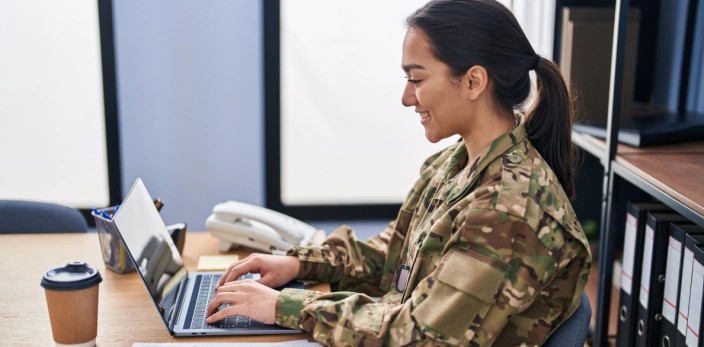
Sustaining military language excellence
The rewards of achieving a high score in the STANAG SLP exam are fulfilling both professionally and personally.
Preparing for it can be daunting. But with the right resources, you can increase your chances of passing with flying colors. Here’s how you can prepare for each part of the exam:
Develop grammar and vocabulary in context
Military personnel regularly encounter written orders, procedures, memos, reports, and e-mails which demonstrates the importance of reading skills.
For those in service, the best way to enhance reading abilities is to study within the context of the military. Not only does it make learning more relevant, but also more effective.
Recognizing this need, goFLUENT offers personalized language training relevant to military needs. Its eLearning platform, Language Academy has a wide range of content and training paths focused on military terminology, protocols, and communication skills specific to special operations.
This content helps learners grasp military jargon, tactics, and intercultural challenges. So if they encounter any unique terms on the job, they’ll understand them right away.
goFLUENT’s Language Academy is also available 24/7. This flexibility allows military personnel to access language courses wherever they are stationed. Also, it’s a great way to fit language training into their busy military duties and obligations.
Write, get feedback, revise, and repeat
The ability to write comprehensively is a skill needed by all military officers.
As Major Trent J. Lythgoe observes, “The Army’s promotion and command selection processes depend heavily on good writing. Board members rely on rater and senior rater comments from officer evaluation reports to make promotion and command selections.”
Writing skills ensure that first, all personnel can properly understand a written order. And second, that there is no ambiguity or miscommunication. In essence, good military writing is clear, concise, and right to the point.
More than its content and resources, goFLUENT also supports the military through Writing Lessons. These exercises focus on different aspects of writing. This includes improving sentence structure, developing coherent paragraphs, and using appropriate vocabulary.
Additionally, dedicated language trainers assess the strengths and weaknesses in an individual’s writing. They also provide targeted guidance on grammar, sentence structure, and paragraph organization.
By putting their writing skills to the test, the better they’ll be able to put complex thoughts to paper, which means, better emails, reports, presentations, and other official documents.
Take part in one-on-one and group conversations
What about speaking skills? For military troops, most orders are verbally communicated. Especially during missions and crises where decisions are needed quickly and communicated to others.
At the same time, active listening ensures that the intended message of an officer is well understood by subordinates. Or a fellow officer from another military camp.
With goFLUENT, military personnel can maximize an array of videos and audio resources on the Language Academy. They will also enjoy speaking with other learners and a live trainer.
Individual Lessons provide military personnel the opportunity to practice their speaking and listening skills intensively. With specialized attention, these one-on-one lessons allow trainers to address specific areas where improvement is needed.
For the military, fostering group interaction and collaboration is also vital. Hence, Group Lessons and Conversation Classes.
Simulating real-world situations, these classes create opportunities for practicing conversation and listening comprehension with peers. They also encourage teamwork, as learners can share experiences and knowledge.
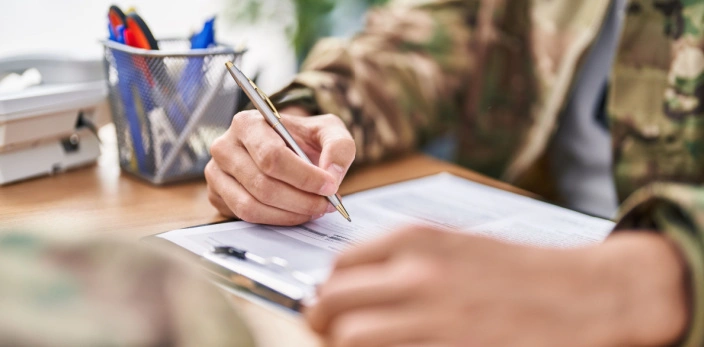
Conclusion
Language proficiency is a vital asset for the military as they aim to excel in the STANAG SLP exam. With interoperability-compliant training, goFLUENT helps military professionals develop their listening, speaking, reading, and writing skills.
Beyond the SLP exam, goFLUENT also equips recruits and officers with military-relevant knowledge to successfully undertake missions. These topics include: The global economy, health, politics, geopolitics, aerospace, aviation, cyber security, and human rights.
By partnering with goFLUENT, military organizations can help their people enhance their language skills and gain better career opportunities. On a larger scale, operational effectiveness and cultural awareness are increased.
